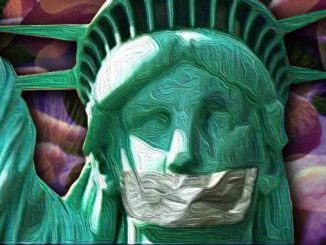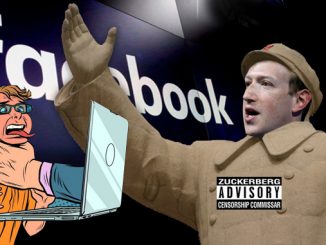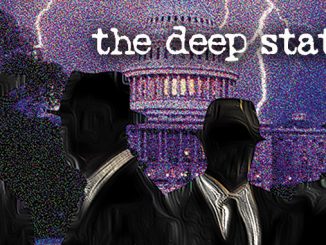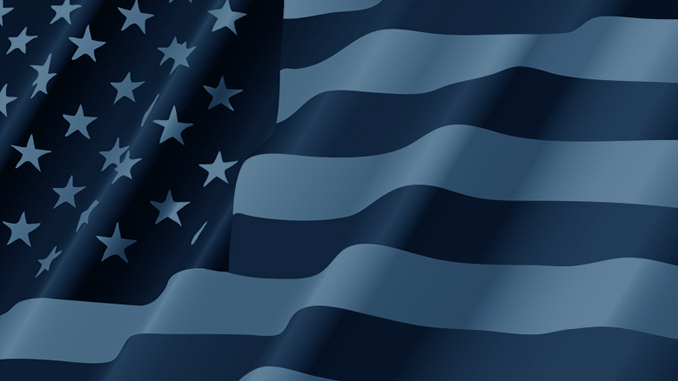
Bans, stringent censorship, public condemnations flow against “QAnon”.
By S.T. Patrick
Whether or not any of the QAnon theories can be factually verified is now insignificant. The geopolitical powerhouses of the social media world are threatened by this devoted swath of the pro-Donald Trump movement, and they have reacted with the symbolic assistance of the U.S. House of Representatives.
Facebook, Twitter, and Instagram have all moved to remove QAnon-driven accounts, with Facebook directly stating it would “remove any Facebook pages, Groups, and Instagram accounts representing QAnon, even if they contain no violent content.” Facebook representatives further explained, “We’ve seen other QAnon content tied to different forms of real-world harm, including recent claims that the West Coast wildfires were started by certain groups, which diverted attention of local officials from fighting the fires.”
Facebook is seriously making the case that local West Coast fire officials had problems focusing on the raging wildfires devastating the Pacific coastline because some social media accounts were promoting different theories about the fires’ origin. If true, these fire officials have a focus problem that no amount of Ritalin could fix. The idea that Facebook is pushing—that the “conspiracy theorists” are “diverting attention” from the fires—is in and of itself a conspiracy theory with no empirical evidence. Yet, the bans continue.
The House of Representatives passed a bipartisan resolution (a nonbinding statement of advocacy or condemnation) condemning QAnon. The resolution (H.Res.1154), sponsored by Rep. Tom Malinowski (D-N.J.), garnered 371 yeas, 18 nays, and one present vote, that of Rep. Andy Harris (R-Md.). The nays included independent Rep. Justin Amash (Mich.), Rep. Steve King (RIowa), and four Texan Republicans, the largest group of nay votes on the resolution. Of the 40 House members not voting, 35 of them were Republicans.
There were reasons given for the resolution, listed in a series of “whereas” statements that define what the congressional view of QAnon really is. They include:
Whereas, throughout history, conspiracy theories that falsely blame secret cabals or marginalized groups for society’s ills have fueled prejudice, genocide, and acts of terrorism;
Whereas QAnon is a movement promoting a collection of unfounded conspiracy theories that have spread widely on the internet since 2017;
Whereas QAnon initially alleged that prominent Americans are engaged in a secret plot to control the world, while using their power to exploit children, and has expanded to embrace virtually every popular conspiracy theory of the last several decades, from questioning the truth about the Sept. 11th terrorist attacks, to believing in alien landings, to denying the safety of vaccines;
Whereas many QAnon followers express anti-Semitic views, and the Anti-Defamation League has said that the movement’s central conspiracy theory includes anti-Semitic elements;
Whereas conspiracy theories have been a central driver of anti-Semitism for centuries, and QAnon conspiracy theories are fanning the flames as anti-Semitism is on the rise in the United States and around the world;
Whereas the Federal Bureau of Investigation (FBI) has assessed with high confidence that “fringe political conspiracy theories,” including QAnon, “very likely motivate some domestic extremists, wholly or in part, to engage in criminal or violent activity,” and that these conspiracy theories “very likely encourage the targeting of specific people, places and organizations, thereby increasing the likelihood of violence against these targets”;
Whereas the FBI bases this assessment on “events in which individuals committed crimes, plotted attacks or successfully carried out deadly violence, and who—either before or after their arrests—attributed their actions to their conspiratorial beliefs.”
More concisely, Melanie Zanona writing on the “Politico.com” website described QAnon as “a baseless fringe movement that has been increasingly embraced by the right, despite the FBI labeling it a potential domestic terrorism threat.” House Rules Chairman Jim McGovern (D-Mass.) called QAnon a “collective delusion” and declared, “We all must call it what it is: a sick cult.”
Rep. Debbie Lesko (R-Ariz.) tried to play the vote moderately, stating, “At the outset, let me be clear, Republicans are concerned with and do not embrace QAnon. It is a serious issue and Republicans don’t discriminate on which dangerous organizations or groups we take seriously. We don’t just condemn groups because it’s politically convenient, because unlike many of our colleagues across the aisle, we also take the threat of Antifa seriously.”
As social media and the House attempt to wipe America clean of QAnon followers, their platforms are still given to Antifa followers, ISIS members, and Black Lives Matter supporters that actively praise the violence and looting occurring across America. This brings into question whether the ban is really about violence at all, or whether it is wholly politically motivated.
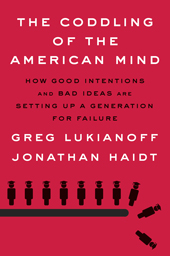
After the vote, Amash tweeted, “The resolution threatens protected speech (absurd as that speech may be), and its prescriptions for addressing QAnon aren’t appropriate for what we know about them and may make things worse. These are conspiracy theorists who believe in a Deep State that’s fighting against them, so Congress’s declaring that the intelligence community and FBI should be sent after them just confirms their fears.”
The House served as the tail wind for the assault on freedom of speech levied by the thought police that head the world’s largest social-media empires. While the QAnon posts do emanate from a person (or persons), there is no club to join, no secret handshake to learn. To paraphrase Joe Biden, “It’s an idea, not a group.” It seems that social media and the House are now—and will hereafter always be—amenable to banning and condemning ideas, a danger to the spirit of the mind and the voicing of individual opinions contained within freedom of speech.
S.T. Patrick holds degrees in both journalism and social studies education. He spent 10 years as an educator and now hosts the “Midnight Writer News Show.” His email is [email protected]. He is also an occasional contributor to TBR history magazine and the current managing editor of Deep Truth Journal (DTJ), a new conspiracy-focused publication available from the AFP Online Store.



